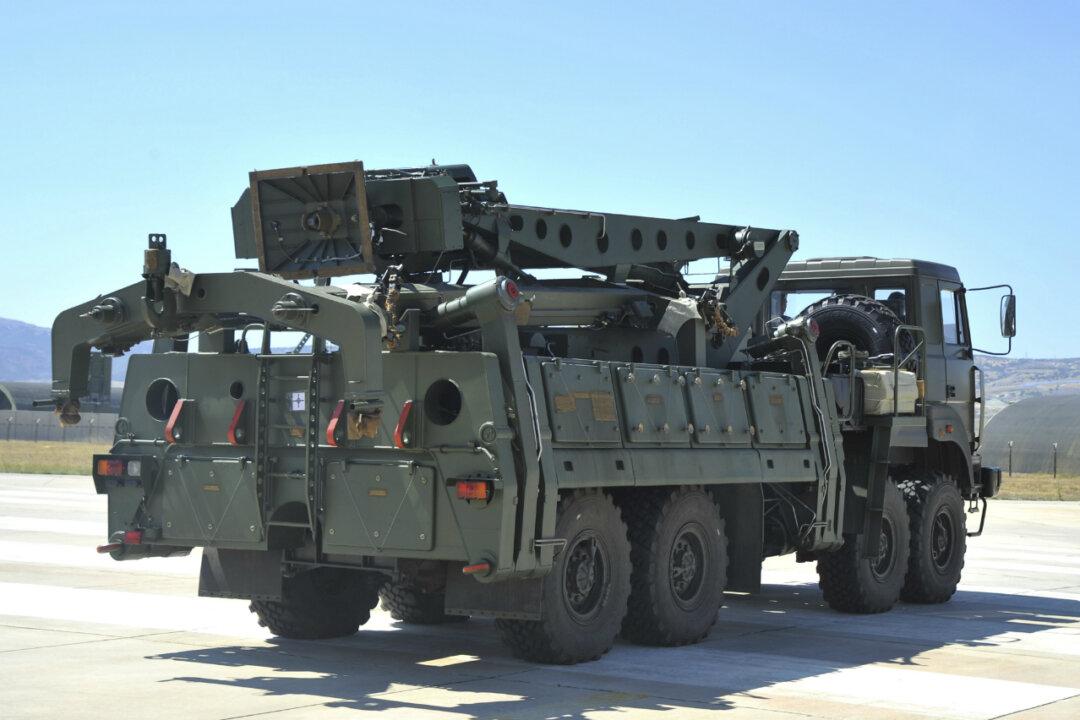The Trump administration on Monday imposed sanctions on its NATO ally Turkey over its purchase of a Russian missile defense system.
The sanctions were imposed in response to a significant procurement of Russian S-400 surface-to-air missile systems and “include a ban on all U.S. export licenses and authorizations to SSB,” U.S. State Secretary Mike Pompeo said in a statement. SSB, or the Presidency of Defense Industries, is a Turkish government institution.





